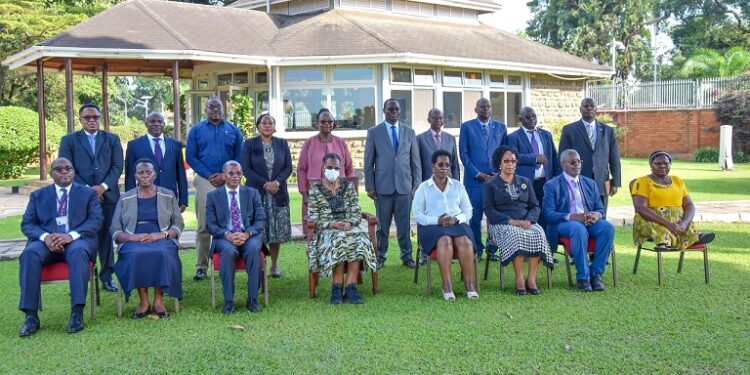By David Mwanje
First Lady and Minister of Education and Sports, Hon. Janet Museveni, has inaugurated the Technical Vocational Education and Training (TVET) Council and Assessment Boards at State House, Nakasero, marking a pivotal step in reforming Uganda’s vocational education system. The ceremony follows the enactment of the TVET Act 2025, a transformative framework aimed at aligning TVET with modern workforce needs and Sustainable Development Goal 4 for inclusive, equitable education.
Hon. Janet Museveni hailed the TVET Act as a “key instrument” for modernizing vocational education, emphasizing its role in equipping Ugandans with practical skills to boost employability, productivity, and economic growth. “TVET is vital for preparing our people for a rapidly changing job market,” she said. The new TVET Council, chaired by Mrs. Allen Kagina and including members Mr. Sikander Lalani, Mr. Douglas Opio, Eng. Ziria Tibalwa Waako, Dr. Tonny Tumwesigye, Ms. Jean Byamugisha, and Mr. Diriisa Ssekitoleko, will oversee policy, financing, licensing of private institutions, and quality assurance across the sector. The Assessment Boards will standardize and evaluate training programs to meet global benchmarks.
Attended by Permanent Secretaries, education leaders, and private sector representatives, the event underscored a collaborative approach to reform. For students and educators, the reforms promise market-driven training in fields like technology and agriculture, improved quality, and greater access, especially for marginalized groups.
However, challenges like funding and infrastructure may need close monitoring to ensure success. This milestone sets the stage for a revitalized TVET sector, poised to drive Uganda’s economic growth through a skilled workforce.
Students can anticipate programs tailored to high demand industries, enhanced by private sector partnerships and a focus on innovation. Expect stricter quality standards, more training centers, and opportunities for women and rural communities. Stakeholders should stay engaged to ensure these reforms deliver tangible outcomes.























